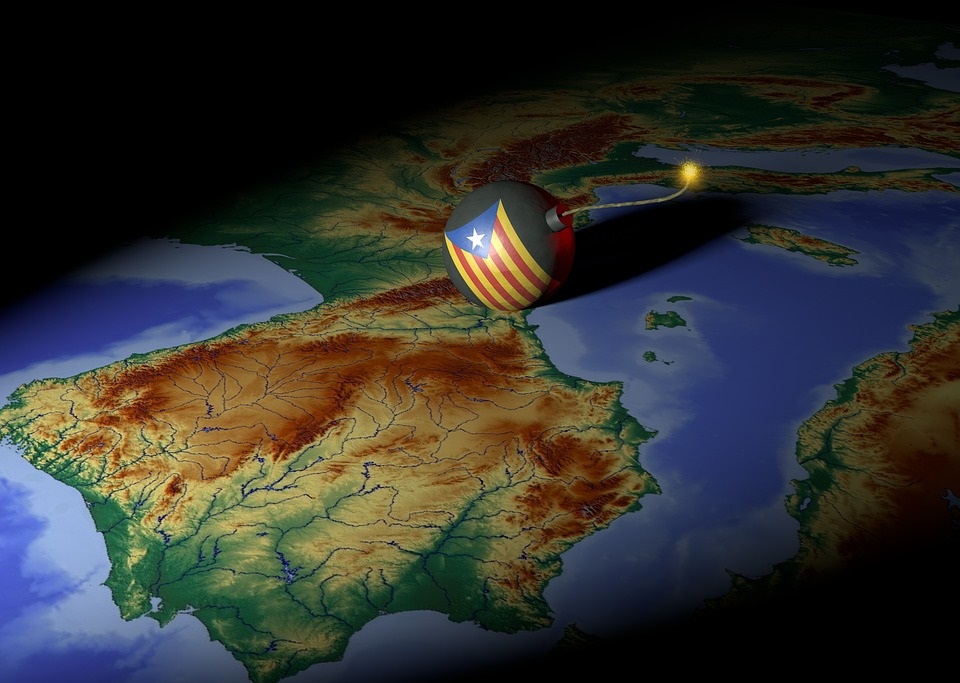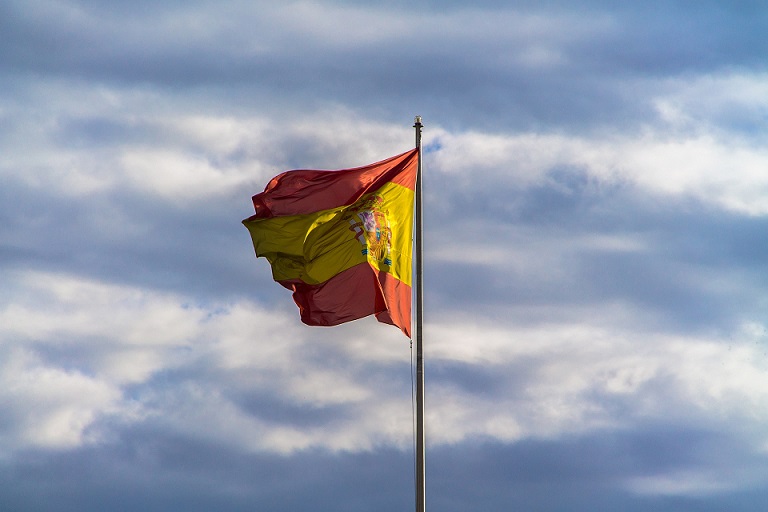In a few weeks’ time, conservative and Francoist nostalgia groups and those defending the rule of law and achievements in social justice, human rights and civil liberties will face each other in Spain.
 Miguel Ángel Ferris
Miguel Ángel Ferris
Correspondent in Paris
A scenario in which the political centre has vanished completely, swallowed up mostly by the right, and in which the territories with a more accentuated and independent political identity, such as Catalonia or Euskadi, are also confronted by those who threaten a return to monarchical and even pre-constitutional centralism. The stakes are high in the bullfighting arena.
A bullfighter is set to become vice-president of the government of the Valencian Country, one of the most prosperous and dynamic regions of Spain. In addition, the ultra-right is going to head the ministries of Culture, Justice and the Interior (police forces). And it will do so not only in that territory, but also in many of the autonomous and local governments in which it has made an agreement with the Partido Popular (PP) on the distribution of powers. This has been done under the shocked gaze of feminist, LGTBI, animal and environmentalist movements and, in general, of the half of the country that votes for progressive choices.
 All the red lines that had been drawn by the most influential media, democratic forces and the conservative PP have long since been blown out of the water. And, after recent advances in the European governments of Finland and Italy, the impact of the wave of the far-right tsunami now threatens to demolish Spain’s democratic institutions.
All the red lines that had been drawn by the most influential media, democratic forces and the conservative PP have long since been blown out of the water. And, after recent advances in the European governments of Finland and Italy, the impact of the wave of the far-right tsunami now threatens to demolish Spain’s democratic institutions.
The worst omens suggest that, after the June 2024 election scenario, this could strike at the heart of the historic project of a continent united by human rights, the defence of liberal constitutions and the rule of law.
Meanwhile, most polls in Spain give a narrow victory to the alliance between the ultra-conservative party of Alberto Núñez Feijoo (president of the PP) and the fascist VOX party.
Alarm bells have gone off among the classical power-blocks (the Partido Socialista Obrero Español -PSOE) and those integrated in the new Coalition that brings together all the left-wing electoral groups, the so-called “Sumar”.
 The leadership of its star candidate, Yolanda Díaz, the current second vice-president of Spain’s progressive government, is indisputable, being the most respected politician on the national stage. Only the sum of this Coalition of the Left and the votes of the Spanish Socialist Workers’ Party (PSOE) could save the country from a historic regression in its long period of transition from Franco’s dictatorship to democracy.
The leadership of its star candidate, Yolanda Díaz, the current second vice-president of Spain’s progressive government, is indisputable, being the most respected politician on the national stage. Only the sum of this Coalition of the Left and the votes of the Spanish Socialist Workers’ Party (PSOE) could save the country from a historic regression in its long period of transition from Franco’s dictatorship to democracy.
The more far-reaching outcome of the 23 June elections in Spain is linked, first and foremost, to the role Spain will play in the six-month presidency of the European Union (EU), which begins on 1 July. This could be presided over by a government of the conservative leader, a friend of Galician drug traffickers and allied with a party with an anti-European vision, steeped in nostalgia for Spain’s colonial, evangelistic and slave-owning past. Secondly, and no less serious for the international context and its growing global threats, a victory for Spain’s far right could also change the relationship of the EU as a whole, in whose relationship with Latin America it plays a very important role, with all the countries of the region and the hegemonic power of the United States.
 The vision of the ultra-liberal Hispanic parties is contrary to the ongoing process of building and advancing progressive proposals in the subcontinent. It also has a declared enmity towards the majority of left-wing Latin American presidents and governments, the majority in the region. Strategic pro-Atlanticism and submission to the orders and interests of the US is one of its main hallmarks.
The vision of the ultra-liberal Hispanic parties is contrary to the ongoing process of building and advancing progressive proposals in the subcontinent. It also has a declared enmity towards the majority of left-wing Latin American presidents and governments, the majority in the region. Strategic pro-Atlanticism and submission to the orders and interests of the US is one of its main hallmarks.
On the other hand, the creation of a market and a neo-colonial political project, which VOX calls the “Iberosphere”, aims to rebuild the old alliances between local right-wing elites and Spanish transnational companies, protected by the rise of a possible ultra-conservative government.
Such a project could count on the joint-venture of the most authoritarian governments on the European scene, eager for new trade relations beyond those that the European Commission and its regional leaders are now trying to re-establish with Latin America, in the face of the penetration of China and Russia in the region.
 In short, adverse results for the current Spanish left-wing coalition government could fuel the rise of authoritarianism and democratic setbacks at all levels, not only in Spain itself, but also in the scenarios of a European Union weakened by the war in Ukraine and the new populist patriotic executives, and the current change of cycle of progressive political change governments in Latin America.
In short, adverse results for the current Spanish left-wing coalition government could fuel the rise of authoritarianism and democratic setbacks at all levels, not only in Spain itself, but also in the scenarios of a European Union weakened by the war in Ukraine and the new populist patriotic executives, and the current change of cycle of progressive political change governments in Latin America.
(Translated by Rene Phelvin – Email: renephelvin@gmail.com) – Photos: Pixabay












.jpg)












